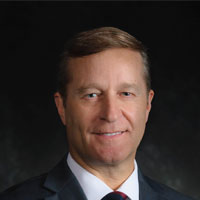November 23, 2020
Dr Martin Luther King Jr
Martin Luther King Jr. was an American Baptist preacher, activist and prominent leader in the American Civil Rights Movement. Today, he is identified as an icon of human rights, and his famous “I Have a Dream” speech is still much admired and quoted.
Martin Luther King Jr. was born on January 15th 1929 in Atlanta, Georgia. He was named Michael King Jr., but changed it to Martin Luther King Jr. in honor of the Protestant preacher. He studied at Morehouse College and graduated with a Bachelor of Arts in sociology. King went on to study systematic theology after his graduation and received a Doctorate of Philosophy in 1955 at the age of 25.
Dr. King applied three key principals to his leadership approach. These were a necessity to be proactive, the power of unity and belief in non-violence.
King held the view that passivity was a way of perpetuating evil. He was more gravely affected by the silence of his friends than the voice of his enemy. He is quoted as having said… “As a leader, you simply cannot be passive. When there’s a major challenge facing your organization, you cannot hide. You have to be proactive in initiating communication, facing challenges and solving problems. This is what makes you stand out as an excellent leader”
He recognized the power of unity, that a group of disciplined and organized individuals who seek positive change in the world could make a difference. With that revelation, he led the Civil Rights Movement to achieve its purpose. He believed that effective leader always challenges the status quo. A leader does not allow social norms to define methods or objectives. Instead, a leader looks to values, and sees the world through his own lens.
King believed that nonviolence was a more powerful weapon than violence and hatred in effecting change. With that, he used nonviolence as the means to attain equal rights for his followers. He stuck to his beliefs and principles, even when it might have been easier to go another route.
As such he advocated that a leader should let principles guide one’s actions and decisions. Through moral courage, a leader does not fall prey to making decisions that go against what you believe for short-term gain. Doing so erodes your credibility as a leader.
His first involvement in the American Civil Rights Movement was the Montgomery bus boycott in 1955. He started the Southern Christian Leadership Conference, a group created by combining black churches, which organized nonviolent demonstrations for civil rights reform.
King applied Gandhi’s nonviolent protest methods in all his demonstrations. It was extremely successful, and helped sway public opinion in favor of the movement.
In 1963, the Big Six, a group of six organizations all with the same purpose of ending racial segregation, organized the March on Washington to bring focus to important issues including the Civil Rights Movement. The march was a resounding success: a quarter million people of all ethnicities attended the event. It was here that King made his famous “I Have a Dream” speech. A speech that emphasized the principals of equal opportunity, merit, self-reliance, and strength of character as defining features. It personified Christian values and the need to earn respect to achieve personal dignity.
For his contributions to the American Civil Rights movement, King was awarded the Nobel Peace Prize in 1964. He was 35 years old at the time, and the youngest person ever to receive this most prestigious award. When notified of his selection, he announced that he would turn over the prize money of $54,123 to the furtherance of the civil rights movement.
He was assassinated in 1968 while on a trip to Memphis. While standing outside his motel lobby, he was shot and was pronounced dead that same night.



